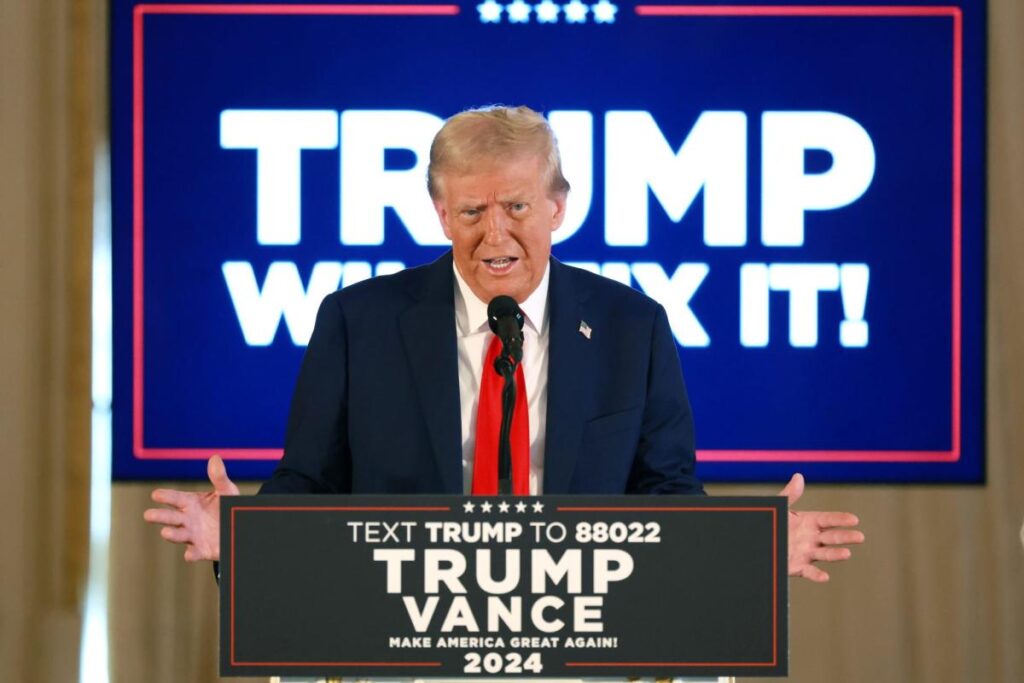As the upcoming presidential election approaches, economic forecasts regarding inflation and the housing market hinge significantly on the potential re-election of former president Donald Trump. Analysts at Capital Economics, led by economist Thomas Ryan, indicate a likely rise in inflation if Trump secures the presidency. They predict that the Federal Reserve will be inclined to maintain or even increase interest rates in response to Trump’s economic policies, especially given that they expect a shift towards deficit-financed tax cuts. This stance emerges from a broader context where economists view the relationship between presidential leadership and economic stability as critical. With the consumer price index at 2.4% in September, close to the Federal Reserve’s target, there’s uncertainty about whether the worst inflationary pressures are truly behind us or if they will be exacerbated under a Trump administration.
Trump’s presidency is perceived as a catalyst for inflation, according to a June letter signed by 16 Nobel Prize-winning economists, raising alarms about the potential resurgence of inflationary trends that have previously destabilized the economy. In contrast, a survey conducted by the Wall Street Journal revealed that 68% of economists believe inflation would likely escalate with Trump at the helm. This perspective highlights systemic concerns about the broader implications of his policies, which were influential factors in freezing the housing market during and after the pandemic. Rising home prices coincided with the inflation surge, culminating in rapidly increasing mortgage rates as the Federal Reserve responded with aggressive interest rate hikes, effectively paralyzing real estate activity.
In the event of a victory for Kamala Harris, economic forecasts suggest a status quo scenario, especially if Republicans maintain control of the Senate. According to Moody’s chief economist Mark Zandi, this likely outcome would yield no significant changes in tax, spending, or regulatory policies. Consequently, he anticipates that inflation would stabilize around current levels, aligning with the Federal Reserve’s objectives. Under such circumstances, housing market conditions are not expected to improve drastically, though some modest recovery could occur. Housing prices may stabilize, and mortgage rates could decrease slightly, offering some relief to buyers.
The anticipated economic impact of Trump’s presidency includes potential increases in tariffs, tax cuts, and immigration measures, all of which are seen as contributing inflationary pressures. Ryan points out that Trump’s proposed tariffs, especially a 60% levy on Chinese imports, coupled with his enforcement of strict immigration policies, would reduce labor supply and drive up consumer prices. This creates a precarious economic landscape where, even if Trump’s policies are tempered by congressional opposition, they still pose severe risks of exacerbating inflation, suggesting that consumer prices will likely exceed current levels under his administration.
As the election nears, market behavior appears to reflect growing concerns around Trump’s economic policies. Mortgage rates have risen sharply following what analysts dub the “Trump trade,” fueled by expectations of higher inflation and increased budget deficits should he win the presidency. The average 30-year fixed mortgage rate climbed back to 7.09%, an effect attributed to betting odds favoring Trump and the resultant fluctuations in the 10-year treasury yield, which significantly influences mortgage rates. These dynamics contribute to a more locked housing market, as existing homeowners are reluctant to trade their comparatively low rates for higher ones amid rising home prices. The combined factors of elevated mortgage rates and a limited housing supply have made acquiring homes increasingly challenging for prospective buyers.
In conclusion, the consensus among economists over how the election’s outcome may affect the economy and housing market paints a complex picture. Should Trump return to office, the outlook is grim, with predictions of a more severe inflation environment leading to a stagnation in the housing market and increased burden on potential homebuyers. Conversely, while Harris is less likely to shift economic conditions substantially, the prospect of a Republican majority in Congress could stifle any significant policy changes, leaving the economy largely unchanged. As both candidates approach election day, their distinct economic strategies will play pivotal roles in determining the short-term future of inflation, interest rates, and the dynamics of the housing market.

